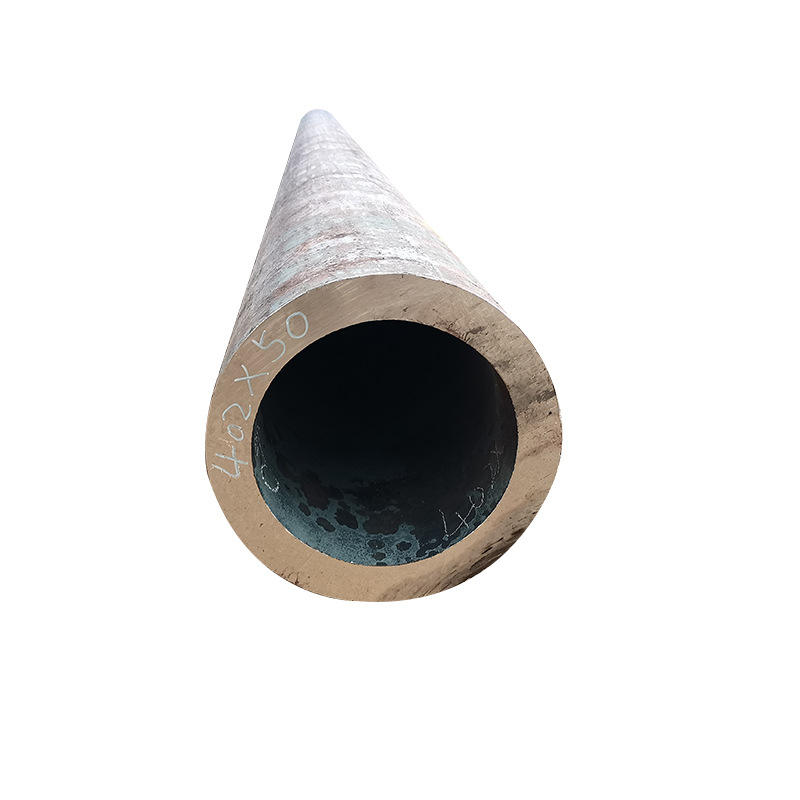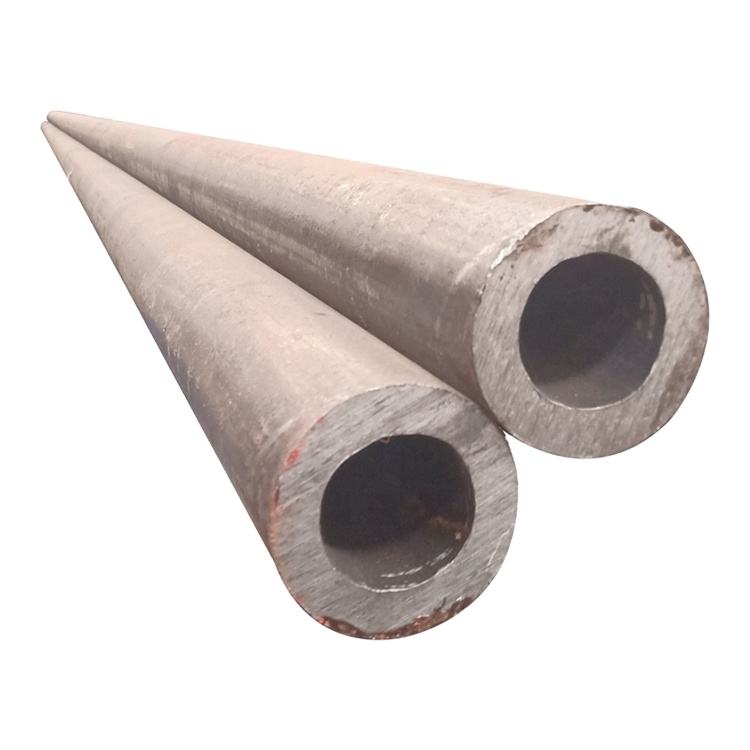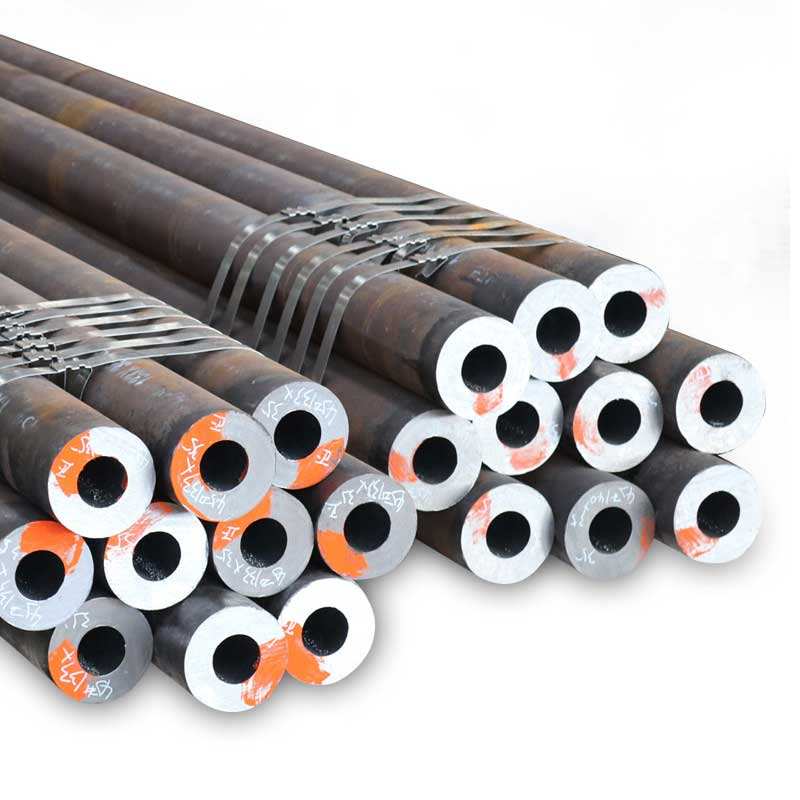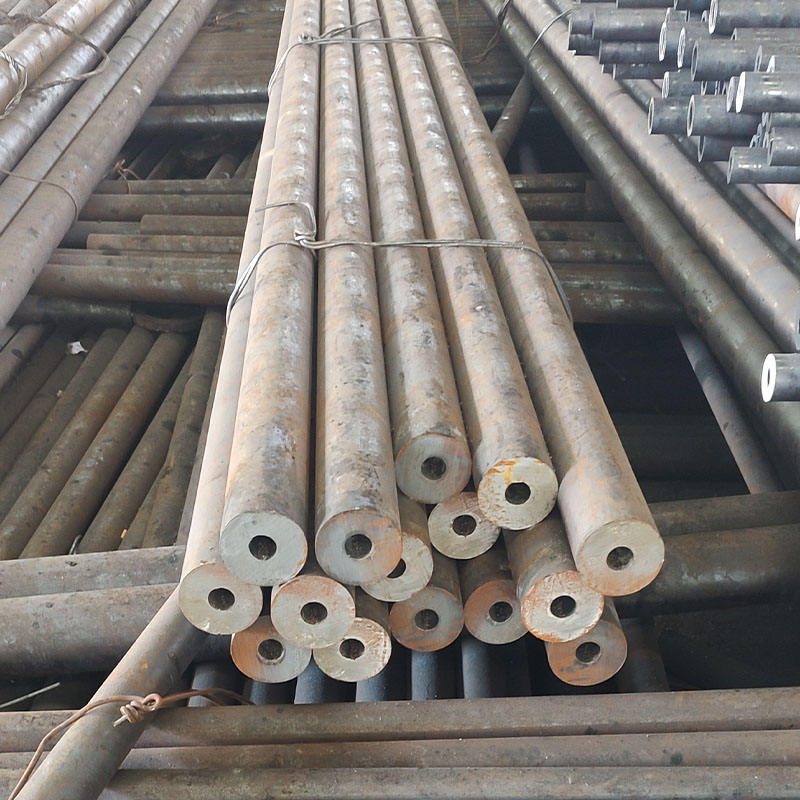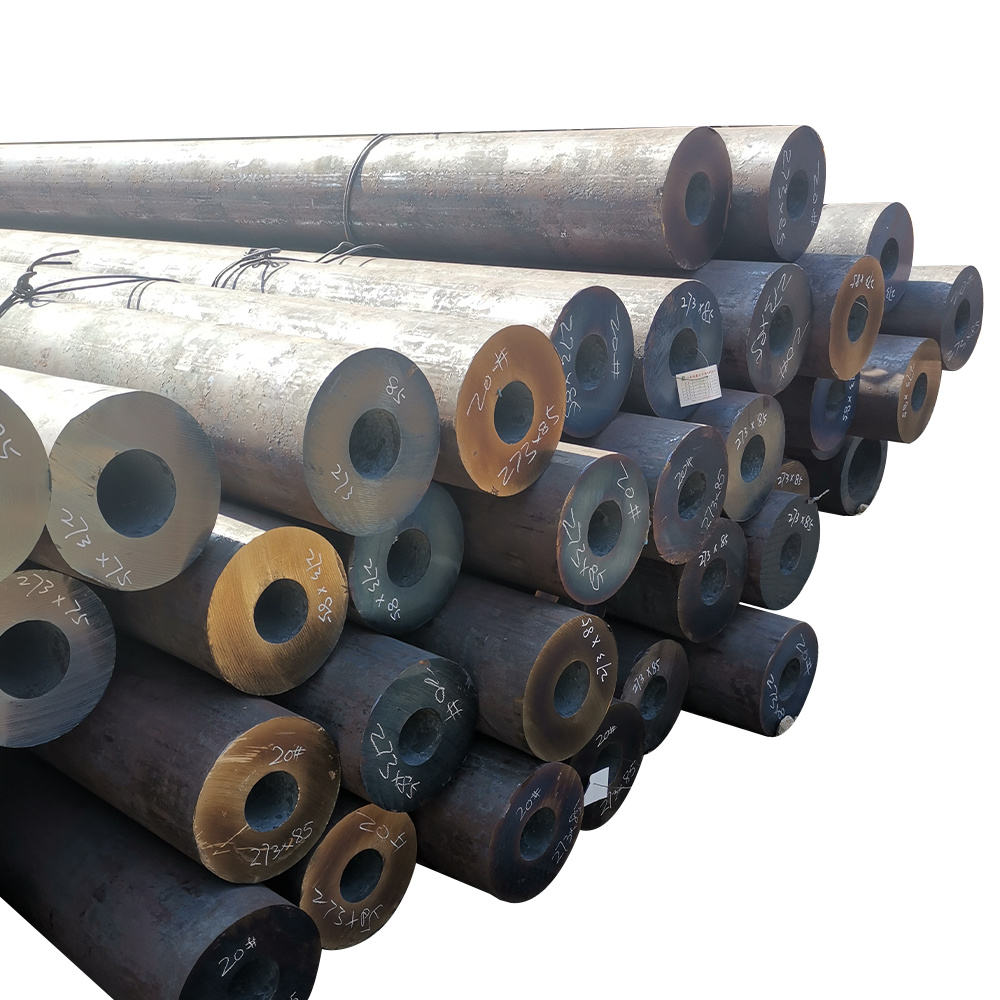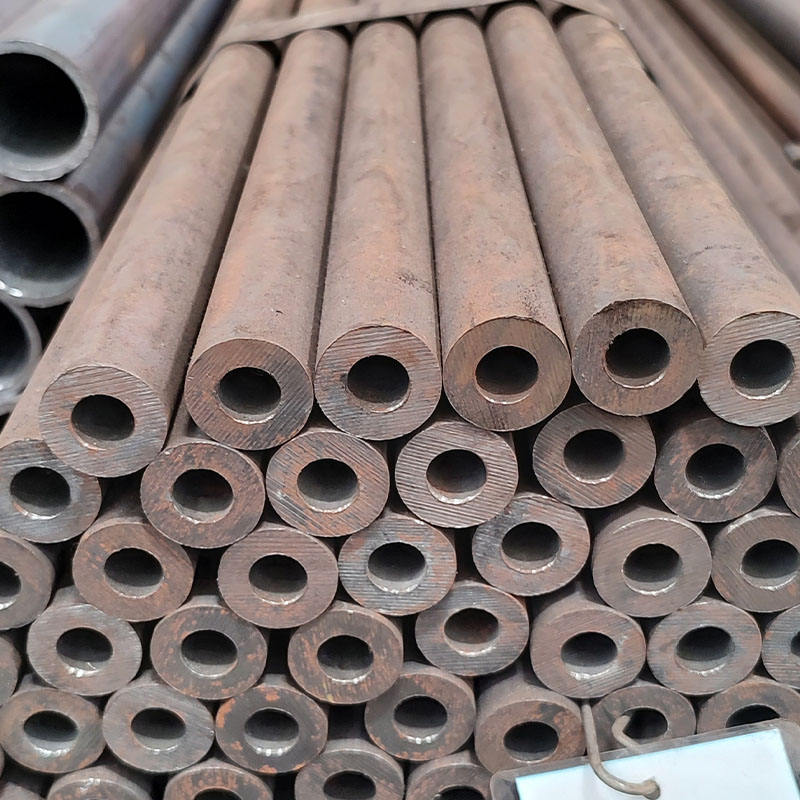Carbon Thick-Walled Seamless Steel Pipe
Seamless steel pipe is a kind of steel pipe without welded seams, usually made from round steel billet through the process of piercing, rolling and annealing. Due to its lack of seams, seamless steel pipe has high strength and pressure resistance, and is widely used in oil, gas, chemical, construction and other industries. According to different materials and applications, seamless steel pipe can be categorized into carbon steel pipe, alloy steel pipe and stainless steel pipe, etc. It has excellent corrosion resistance, high temperature resistance and mechanical properties.
Thick-walled seamless steel pipe is a kind of high-strength, high wear-resistant and thick-walled steel pipe, which is widely used in all kinds of industrial and construction fields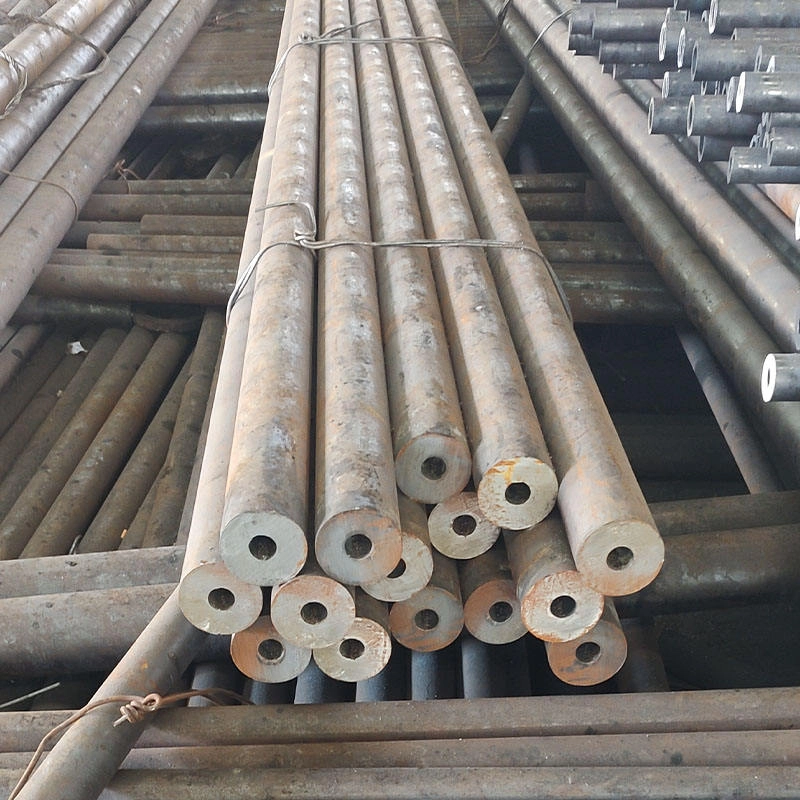
Areas of application
Oil and gas: in oil drilling, natural gas extraction and transportation, thick-walled seamless steel pipe can withstand high pressure and corrosion resistance, and is an important material for oil well pipe, casing and transmission pipeline.
Chemical industry: used in chemical reactors, transportation pipelines and storage tanks, able to withstand high temperature, high pressure and chemical corrosion.
Mechanical manufacturing: as a load-bearing component in mechanical structures, such as hydraulic cylinders, machine tool support parts.
Construction engineering: in high-rise buildings, bridges and other structures, thick-walled seamless steel pipe is used for load-bearing and support to ensure structural stability.
Power industry: used in high pressure boiler piping, heat exchangers and other equipment.
Technical specifications
Outside diameter and wall thickness: the outside diameter of thick-walled seamless steel pipe usually ranges from 20mm to 1000mm, and the wall thickness can be 1/4 or more of the outside diameter of the pipe. Specific specifications are chosen according to standards and application requirements.
Material Grade: Commonly used materials include carbon steel (e.g. Q345), alloy steel (e.g. 42CrMo), stainless steel (e.g. 304, 316), etc. Different materials have different mechanical properties and corrosion resistance.
Standards: Common standards are ASTM (such as ASTM A106, ASTM A333), API (such as API 5L), DIN (such as DIN 17175) and so on. These standards specify the chemical composition, mechanical properties and test methods of steel pipe.
Related Products
Submitted successfully
We will contact you as soon as possible
Submitted successfully
We will contact you as soon as possible

